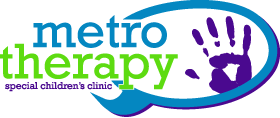Fall 2017 Newsletter
Common Questions
How Many Words Should my Toddler Be Using?
Parents are often curious about their young children’s language development and wonder if they are using the number of words they should be using at a certain age. Developmental checklists of speech milestones can be helpful, but don’t always tell the whole story.
There is great variation in development during early childhood and milestone charts account for this variation by listing minimum benchmarks rather than averages. An example helps clarify the difference. Speech milestone charts list that children should be using 50 words by 24 months of age. This means that 90% of children are using at least 50 words by 24 months. However, an average vocabulary size at 24 months is 200-300 words! This means that 50% of children are using at least 200-300 words at this age. It is easy to see how the milestone may be misinterpreted by parents, or even professionals. If a child has, for example 30 words at 24 months, a parent may think the child is not too far behind, when compared to average vocabulary size, he/she is significantly behind.
Parents or caregivers that have concerns about their children’s language development should consult a speech-language pathologist for an individualized assessment. Metro Therapy offers free screenings for families that aren’t sure if they need a full evaluation.How do I encourage safety awareness without being a helicopter parent?
How do I encourage safety awareness without being a helicopter parent?
There is a fine balance between making sure your child doesn’t get hurt and letting your child experience the important value of “doing it all by myself”. In the therapy clinic and at
the park, giving children enough room to try things for themselves but staying close enough to catch them if necessary, is essential. As we watch the child engage in play we recognize skilled areas and when the child may need more help. Physically tapping a leg or touching a hand to give positioning cues might be all a child needs to get himself up a ladder safely, rather than a parent lifting him to the top of the climbing structure. Using as minimal physical contact as possible for the child to achieve the goal SAFELY will allow your child to develop new skills and abilities.
This may sound crazy, but jumps, bumps, crashes, and occasional safe “daredevil” behavior can actually increase body awareness, affecting balance, motor coordination and self-regulation! While we do NOT encourage children launching themselves off of high surfaces (unless onto heavily padded floors and into crash pillows or ball pits!), research shows that each and every jolt to joints, muscles, and skin can shift how a child moves through space and interacts with his environment.
School Services
With the school year getting underway, school-based therapy services will also be starting back up for many children. School districts provide valuable therapy services to students to help them achieve their educational goals. Parents, caregivers, and others involved in a child’s life may wonder about the relationship between those school services and those provided at Metro Therapy. Here are some answers to some common questions:
Q: My child was evaluated through the school district and they said he/she didn’t qualify for speech and/or occupational therapy. Will we qualify for services through the clinic?
A: School districts have very specific criteria that must be met for students to qualify for special services. For example, they must score a certain amount below average on a standardized test, or sometimes in multiple areas. Sometimes kids don’t meet that criteria but still have areas of need. At our clinic, the eligibility criteria services is different, so we may be able to provide services to children who didn’t qualify in the school.
Q: My child does get services through the schools, why might we need more than that?
A: Supplementing your child’s school therapy services with additional treatment through our clinic can help them achieve their goals faster and generalize their progress through increased frequency and duration of treatment. Additionally, we are able to help with areas that may be more relevant to their home and community life, as well as impact their ability to learn in school.
Q: Will you collaborate with my child’s school team?
A: As long as we have parents’ permission to share information, we do our best to stay in touch with school therapists regarding our shared clients. We take into consideration a child’s current IEP goals as we develop our treatment plans and try to support and enhance the work that is being done in school.
Metro Therapy Team Anniversaries:
Sarah Hetz is celebrating 6 years.
Veronica Clark is celebrating 5 years.
Jessica Paredes is celebrating 4 years.
Kelsey Olson is celebrating 3 years.
Brittany Ahlskog is celebrating 3 years
Katy Fischer is celebrating 2 years
Becka Haensel is celebrating 2 years.
Monica Wielinski is celebrating 1 year.
Brittany Ahlskog, MS, CCC-SLP recently completed the following continuing education courses:
Evaluation and Treatment of Childhood Apraxia of Speech: The Kaufman Speech to Language Protocol
Orofacial Myology/Tongue Thrust: An Introduction with Assessment Applications
Professional Diversity: How Your Unique Perspective Can Improve Clinician Decision Making
Sarah Hetz, MS, CCC-SLP recently completed the following continuing education courses:
Contrastive Approaches to Phonological Intervention
Expediting Intelligibility Gains in Children
Differential Diagnosis of Childhood Apraxia of Speech
Join us in welcoming Lindsey Brown, BA, COTA. You might recognize her from her internship with Metro Therapy in the Fall of 2016. Lindsey will be joining our team September 2017.
Metro Therapy will be closed September 4th for Labor Day, November 23rd and 24th for Thanksgiving.
